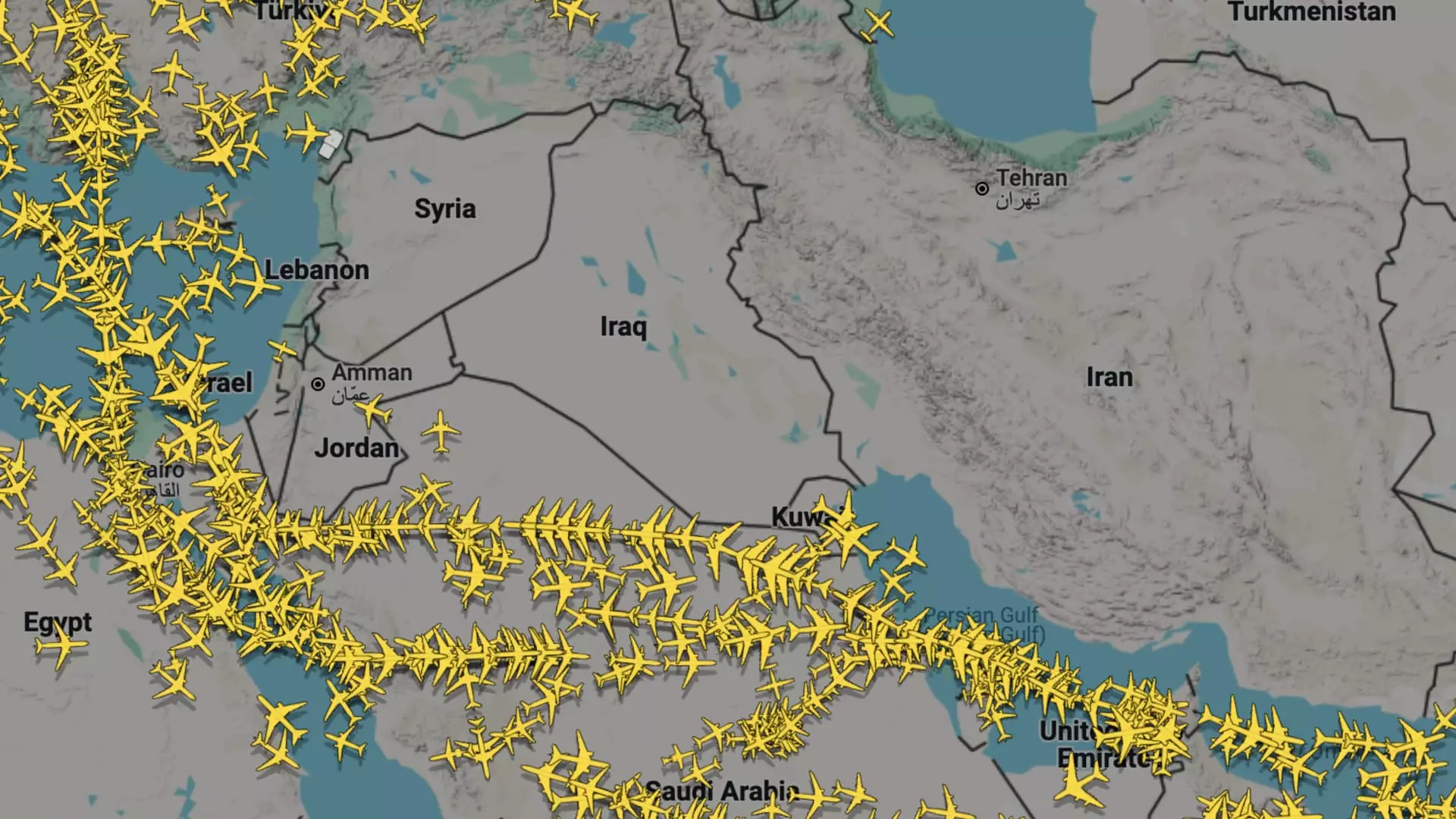The recent surge in military engagements has cast a long shadow over global air travel, particularly in the Middle East. Following an unexpected missile strike by Israel on Iranian targets, the effects were felt immediately, resulting in a wave of flight cancellations that left passengers stranded and wary. Airlines like Delta Air Lines and United Airlines swiftly cancelled their services to Tel Aviv, halting flights mid-air and redirecting planes back to their departure points. This situation underscores a critical reality in aviation: when political tensions escalate, the effects ripple far beyond borders, impacting families, businesses, and economies globally.
El Al’s Indefinite Suspension: A Stark Warning
Israel’s flagship airline, El Al, made the shocking announcement to suspend all flights indefinitely as a direct response to the region’s heightened insecurity. By issuing an advisory that no bookings would be made until at least the end of June, El Al is not only reflecting immediate safety concerns but also signaling a potential long-term crisis for travel to Israel. Their stern warning to travelers abroad to secure accommodation instead of heading to Ben Gurion Airport carries an unsettling message: the situation remains volatile, possibly far more than what mainstream media is reporting. This precaution paints a grim picture of the region’s stability and raises pressing questions about the future of tourism and travel in Israel.
International Repercussions and Travel Alternatives
European carriers like Lufthansa, along with Turkish Airlines and Wizz Air, joined the fray by suspending flights not only to Tel Aviv but also to Tehran and neighboring countries such as Jordan and Lebanon. This collective action by major airlines demonstrates a profound shift in how countries and their airlines view risk in the region. The travel industry, already grappling with numerous challenges linked to the COVID-19 pandemic, now faces new hurdles as the threat of conflict looms large. Such alterations in flight routes mean that travelers may now have to contend with uncertainty, extended travel times, and increased expenses as airlines reroute flights to avoid potential areas of conflict.
The Need for Political Solutions
It is evident that the airline industry is caught in the crossfire of geopolitical strife, forcing them to prioritize passenger safety over convenience. A long-term resolution to the conflicts that plague this region is paramount. Rather than merely responding reactively to immediate threats, national leaders must engage in proactive diplomacy to de-escalate tensions. Without robust and meaningful dialogue, the cycle of cancellations and unrest will continue, exacerbating civilian dismay as travelers face limitations, shifting itineraries, and uncertain access to one of the world’s pivotal regions.
As liberals, we must advocate for an international approach that emphasizes peace over military action. By fostering understanding and cooperation, we can shift the narrative from one dominated by fear to one paved with opportunities for collaboration in the skies and beyond. The journey to stability must begin with a commitment to dialogue—an essential step to ensuring that the turbulence in the skies reflects not only the conflicts below but also the hope for a more harmonious future.

